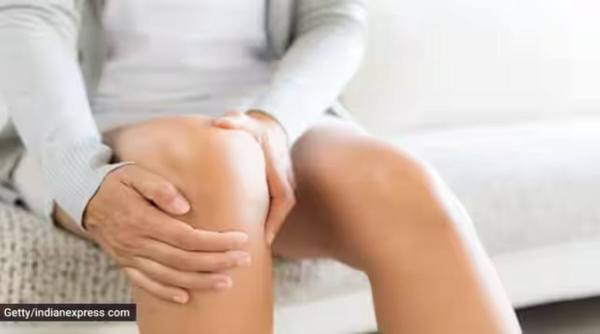Stuck in space, Sunita Williams is at risk of losing muscle mass and bone density; here’s what it means
Indian-American astronaut Sunita Williams and her colleague Butch Wilmore have been stuck in space for more than 50 days. What was to be a 10-day mission, was unexpectedly delayed due to technical issues with their spacecraft. Now reports suggest that Williams and Wilmore face the risk of decreased muscle mass and bone density due to lack of gravitational pull in outer space.
We reached out to an expert to understand more about muscle mass and bone density on Earth and in space.

According to Medical News Today, muscle mass refers to the amount of soft muscle tissue in the body. Other major components of the body include fat, bone, and water. “Muscles primarily help with movement, maintaining posture, and supporting bodily functions,” it read.
Bone density, a measure of minerals like calcium and phosphorus, is an indicator of osteoporosis risk.
Dr Sreenivasachary Avancha, senior consultant, Gleneagles Hospitals, LB Nagar, Hyderabad said loss of muscle mass (sarcopenia) and bone density (osteoporosis) can significantly impact the body, both on Earth and in space. “On Earth, sarcopenia leads to reduced strength, balance, and mobility, increasing the risk of falls and fractures. Osteoporosis causes bones to become fragile and more susceptible to breaks. Together, these conditions can severely impair quality of life and independence,” explained Dr Avancha.
 Bone health is impacted by various factors (?Source: Getty Images/Thinkstock)
Bone health is impacted by various factors (?Source: Getty Images/Thinkstock)
In space, the effects are more pronounced due to the lack of gravity, Dr Avancha elaborated.
According to Dr Avancha, astronauts experience accelerated muscle atrophy and bone de-mineralisation. “Without the gravitational forces that provide resistance, muscles weaken rapidly, and bones lose minerals, particularly calcium, at a much faster rate than on Earth. This results in decreased bone density and muscle strength, posing serious health risks upon return to Earth’s gravity,” said Dr Avancha.
What can help?
Preventative measures, such as resistance exercises and adequate nutrition, are essential in both environments, said Dr Avancha. “On Earth, weight-bearing activities and a diet rich in protein and calcium can mitigate these effects. “In space, astronauts follow strict exercise regimens and may take supplements to counteract the rapid decline,” said Dr Avancha.
Understanding these physiological changes is crucial for maintaining health and functionality both on Earth and during space missions.
📣 For more lifestyle news, click here to join our WhatsApp Channel and also follow us on Instagram
Disclaimer: The copyright of this article belongs to the original author. Reposting this article is solely for the purpose of information dissemination and does not constitute any investment advice. If there is any infringement, please contact us immediately. We will make corrections or deletions as necessary. Thank you.

